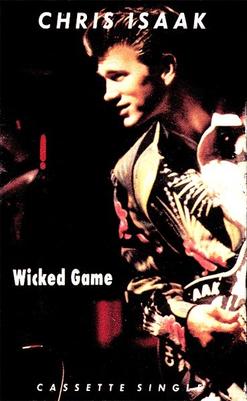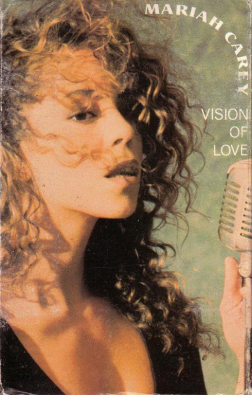Related Research Articles
"Unchained Melody" is a 1955 song with music by Alex North and lyrics by Hy Zaret. North wrote the music as a theme for the prison film Unchained (1955), hence the song title. Todd Duncan sang the vocals for the film soundtrack. It has since become a standard and one of the most recorded songs of the 20th century, most notably by the Righteous Brothers in 1965. According to the song's publishing administrator, over 1,500 recordings of "Unchained Melody" have been made by more than 670 artists, in multiple languages.
Black Box is an Italian house music group popular in the late 1980s and early 1990s. The group is currently made up of DJ Daniele Davoli, classically trained clarinet teacher Valerio Semplici, keyboardist and electronic musician Mirko Limoni, and vocalist Celestine Walcott-Gordon. French fashion model Katrin Quinol joined the act in 1989 and became the official face of Black Box, appearing on the cover of their single and album releases as well as in music videos, including the hit "Ride on Time", which was the highest-selling single of 1989 in the UK. The following year, it was revealed that Quinol was lip-syncing and had not performed on the recording. American singer Martha Wash performed the majority of the songs on the group's debut album, Dreamland, while being uncredited.

"Take My Breath Away" is a song written by Giorgio Moroder and Tom Whitlock for the 1986 film Top Gun, performed by American new wave band Berlin. It won the Academy Award for Best Original Song as well as the Golden Globe Award for Best Original Song in 1986.

Technotronic was a Belgian electronic music project formed in 1987 by Jo Bogaert, best known for the 1989 single "Pump Up the Jam", which features vocals by Ya Kid K. The song peaked at number 2 on the Billboard Hot 100 in the United States. Later that year, the single was followed by the album of the same name, which peaked at number 10 on the Billboard 200. They achieved further success with the singles "Get Up! " and "Move This". Technotronic went on to release the albums Body to Body (1991) and Recall (1995).

I'm Your Baby Tonight is the third studio album by American singer Whitney Houston. It was released on November 6, 1990, by Arista Records. The album is one of the best-selling female albums of all time and has been certified quadruple platinum by the Recording Industry Association of America (RIAA).

"Wicked Game" is a song by American rock musician Chris Isaak, released from his third album, Heart Shaped World (1989). Released as a single in July 1989, it became a sleeper hit after being featured in the 1990 David Lynch film Wild at Heart, starring Nicolas Cage and Laura Dern. Lee Chesnut, an Atlanta radio station music director who loved David Lynch films, began playing the song, and it quickly became an American top-10 hit in March 1991, reaching number six on the Billboard Hot 100. Internationally, the single became a number-one hit in Belgium and reached the top 10 in several other nations.

"Escapade" is a song by American singer Janet Jackson from her fourth studio album, Janet Jackson's Rhythm Nation 1814 (1989). It was written and produced by Jackson and Jimmy Jam and Terry Lewis. The song was released on January 8, 1990, by A&M Records as the third single from Janet Jackson's Rhythm Nation 1814 (1989). "Escapade" became the third of the historic seven top-five singles released from the Rhythm Nation 1814 album, reaching number one on the US Billboard Hot 100.

"Sadeness (Part I)" is a song by German musical project Enigma, released in October 1990 by Virgin Records as the lead single from their first album, MCMXC a.D. (1990). It was written by Michael Cretu, Fabrice Cuitad and Frank Peterson, and produced by the latter. The song features French lyrics whispered by Cretu's then-wife, Sandra and became an international hit, reaching number one in 14 countries. In the United States, it peaked at number five on the Billboard Hot 100 and number one on both the Dance Club Play and 12-inch Singles Sales charts. Its music video was directed by Michel Guimbard, featuring a scribe dreaming of wandering into The Gates of Hell. A sequel to the song, "Sadeness (Part II)" featuring Anggun, was released on Enigma's eighth studio album, The Fall of a Rebel Angel (2016).

"Vision of Love" is the debut single by American singer-songwriter Mariah Carey, recorded for her eponymous debut studio album (1990). It was written by Carey and Ben Margulies. After being featured on Carey's demo tape for Columbia Records, the song was re-recorded and produced by Rhett Lawrence and Narada Michael Walden. The song features a slow-dance theme tempo and backing vocals sung by Carey, and introduces her usage of the whistle register. The lyrics of the song represent her past life filled with "alienation" and how she had dreamed of achieving her triumph over adversity up to the moment when it finally came to fruition as the "vision of love" that she had always believed in, despite everything that she has had to deal with in life. The song was released as the lead single from Mariah Carey on May 15, 1990, by Columbia Records.

"Itsy Bitsy Teenie Weenie Yellow Polka Dot Bikini" is a novelty song telling the story of a shy girl wearing a revealing polka dot bikini at the beach. It was written by Paul Vance and Lee Pockriss and first released in June 1960 by Brian Hyland, with an orchestra conducted by John Dixon. The Hyland version reached number one on the Billboard Hot 100, selling a million copies in the US, and was a worldwide hit. The song has been adapted into French as "Itsy bitsy petit bikini" and into German as "Itsy Bitsy Teenie Weenie Honolulu-Strand-Bikini", reaching number one on national charts in both languages. Several versions of the song have proved successful in various European countries. In 1990 a version by British pop band Bombalurina, titled "Itsy Bitsy Teeny Weeny Yellow Polka Dot Bikini", reached number one on the UK Singles Chart and in Ireland.

"Nothing Compares 2 U" is a song written by the American musician Prince for his band the Family. It first appeared on their only album, The Family (1985). Its lyrics express the feelings of longing expressed by an abandoned lover.

"I Just Called to Say I Love You" is a ballad written, produced, and performed by American R&B singer and songwriter Stevie Wonder. It was a major international hit, and remains Wonder's best-selling single to date, reaching number one in 28 countries worldwide.

"Suicide Blonde" is the lead single from Australian rock band INXS's seventh studio album, X (1990). It was released on 22 August 1990 in the United States and on 3 September 1990 in the United Kingdom. The song reached number two in Australia, number nine in the United States, and number 11 in the United Kingdom. In Canada and New Zealand, the single peaked at number one for two and three weeks, respectively. At the APRA Music Awards of 1991, "Suicide Blonde" won the award Most Performed Australian Work Overseas.

American singer Madonna has released 94 singles and 23 promotional singles and charted with 23 other songs. Among those releases, a total of 44 singles have topped the official chart in at least one of the world's top 10 music markets, from "Like a Virgin" (1984) to "Give Me All Your Luvin'" (2012). She has sold more than 100 million singles, predominantly in physical formats, with single certifications spanning 40 years from "Holiday" (1983) to "Popular" (2023). According to Billboard, Madonna is the most successful solo artist in the United States singles chart history, second overall behind the Beatles. In the United Kingdom, Madonna is the most successful female artist, with a total of 64 top-ten songs and 13 chart-toppers. At the 40th anniversary of the GfK Media Control Charts, Madonna was ranked as the most successful singles artist in German chart history. Editors of The New Rolling Stone Album Guide (2004) wrote that Madonna is a "deserving candidate for the title of greatest singles artist since the 1960s heyday of the single"; the staff of Slant stated in 2020 that "by every objective measure, she's the most successful singles artist of all time".

"Pump Up the Jam" is the opening track on Belgian act Technotronic's first album, Pump Up the Jam: The Album (1989). It was released as a single on 18 August 1989 by Swanyard and SBK Records, and was a worldwide hit, reaching number two in the United Kingdom in late 1989 and on the US Billboard Hot 100 in early 1990. It also peaked at number one in Belgium, Finland, Iceland, Portugal and Spain. "Pump Up the Jam" has been described as a fusion of hip hop and deep house elements, as an early example of the hip house genre, and it has been considered the first house song to become a hit in the US.

"Rhythm of the Rain" is a song performed by The Cascades, released in November 1962 in the US and on January 25, 1963 in the UK. It was written by Cascades band member John Claude Gummoe. On March 9, 1963, it rose to number 3 on the Billboard Hot 100, and spent two weeks at number 1 on Billboard's Easy Listening chart. Billboard ranked the record as the number 4 song of 1963.

"The Power" is a song by German Eurodance group Snap!, released as their debut single. It was released on 3 January 1990 by Ariola and Arista as the lead single from their debut studio album, World Power (1990). The song reached number one in Greece, the Netherlands, Spain, Switzerland, the UK and Zimbabwe, as well as on the US Billboard Hot Dance Club Play and Hot Rap charts. On the Billboard Hot 100, "The Power" managed to reach number two for one week. In 2022, Rolling Stone featured it in their list of the "200 Greatest Dance Songs of All Time".
The Dance Singles Chart and the Dance Albums Chart are music charts compiled in the United Kingdom by the Official Charts Company from sales of songs in the dance music genre in record stores and digital downloads The chart can be viewed on the BBC Radio 1's and Official Charts Company's website.
"(Now and Then There's) A Fool Such as I" is a popular song written by Bill Trader and published in 1952. Recorded as a single by Hank Snow it peaked at number four on the US country charts early in 1953.
This is a list of the number-one singles of the UK Indie Chart.